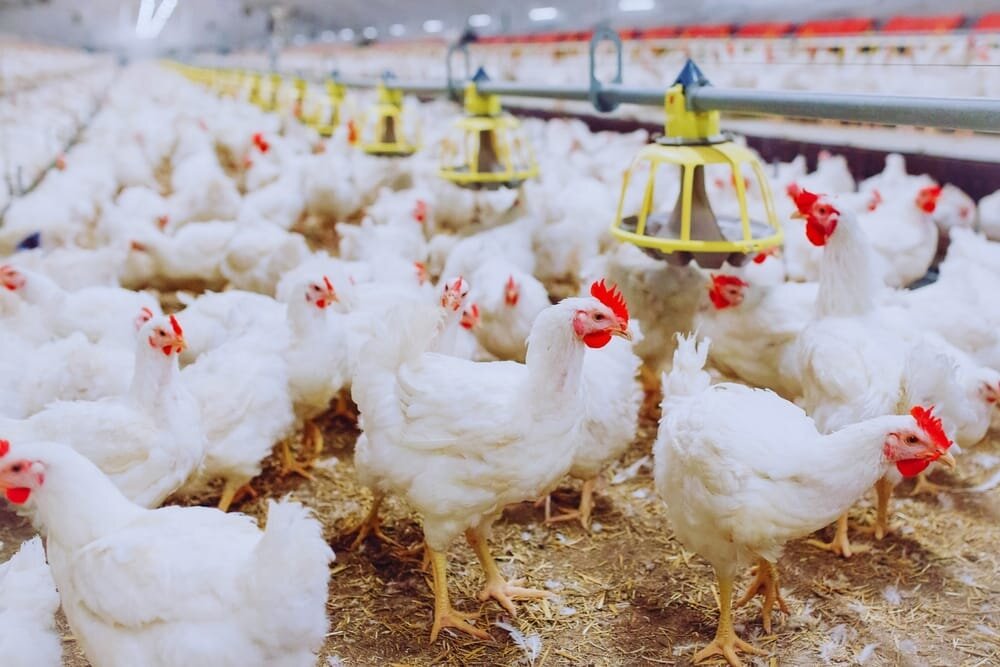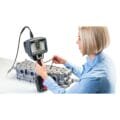~ WEG motors reduce energy consumption by over 30 per cent while ensuring animal comfort ~
Egg production can be energy-intensive, with significant power needed to run everything from brooding and hatching through to egg storage and distribution. When coupled with the necessity for high throughput, it can be a challenge to both keep operations running and ensuring animal comfort and safety. To find ways to improve efficiency and sustainability of its Santa Catarina egg production plant while also keeping animal wellbeing a priority, Ovus Kasulke approached commercial electric motor manufacturer WEG for a bespoke solution.
Ovus Kasulke’s plant produces up to 500,000 eggs every day. A key contributor of electricity usage in this operation are the fans used in plant aviaries which, at the time, were powered by motors running at low efficiency.
Climate control is essential in egg production and to achieve high quality products, animals should have the best quality of life possible. This made it integral for Ovus Kasulke to keep their fans operating effectively and reliably.
To power the aviary fans, they were coupled to the motors with belts and pulleys. These additional assets incorporated more components and increased complexity, making the system harder to maintain or repair. To develop a more efficient and sustainable approach, Ovus Kasulke partnered with WEG’s Energy Efficiency Business Centre.
WEG’s engineers proposed a solution using motors from its WEG Electronic Commutated Motor (WECM) line. The WECM is an electric motor with permanent magnets, giving the motor a higher power rate in a smaller frame. The WECM also has an integrated frequency inverter in its end shield, allowing the speed of the motor to be adjusted. This means that no installation or cabling of a separate drive is needed, and the associated costs are avoided, as it is already a complete system.
The WECM line was developed for air handling applications such as powering fans and adheres to performance values set out in the IE5 level of the European IEC 60034-30-2 standard.
Simplified maintenance for reliable running
Reliability and maintenance were already a concern at Ovus Kasulke due to the configuration of their existing motors and the WECM offered a solution to this issue. The motor’s modular design makes it easier to install, repair and maintain. Its magnet technology increases the motor’s lifespan overall, but it is also equipped with several electronic protection mechanisms, preventing overload, overheating and blockages for safer operation and reliability. This contributes to lower maintenance costs and more consistent performance.
The use of belts and pulleys to connect the motors to the aviary fans was a particular area for concern in Ovus Kasulke’s existing set up, in terms of complexity and efficiency. WEG’s proposed system involved the use of motors from the WECM range which could be coupled directly to the fans due to their high torque capabilities.
Due to the modularity and interchangeability of the WECM range, and the number of mounting options, retrofitting and installation was also far more straightforward. This reduces the overall energy consumption of the system, for lower running costs and improved sustainability.
Performance without sacrificing comfort
This new solution also maintains air flow more effectively, with lower levels of noise and vibration, as well as intuitive temperature and humidity controls. This improves the aviary environment and thus gives the best quality of life for the animals, which in turn has a positive impact on product quality and output.
The WECM line includes models with both single-phase and three-phase power to meet the unique needs of a range of industries. The motors are easily interchangeable with other motors for a versatile addition to a production operation, and are also Industry 4.0 compatible, making them an ideal choice for digital transformation.

A greener, more efficient solution
The pilot project between WEG and Ovus Kasulke achieved overall energy savings of 32.2 per cent. Following the success of the pilot, the project was then expanded further to 110 WECM products overall. It is predicted that these motors will reduce Ovus Kasulke’s energy consumption by around 442 Megawatt hours per year (MWh/year) and prevent the emission of 18.8 tonnes of carbon dioxide equivalent (tCO2e). This not only represents significant financial savings, but it is also a major step towards more sustainable and more efficient egg production.
Ventilation systems are essential in ensuring animal comfort and wellbeing for industries reliant on livestock. Suitable environmental conditions are imperative in product quality and output, and WEG’s WECM range offers superior control for air handling applications. For WEG, this project highlights the performance of its WECM line in all ventilation systems, as well as providing the customer with financial savings, quality assurance and energy efficiency.
To find out more about WEG’s WECM line, visit the website here.







